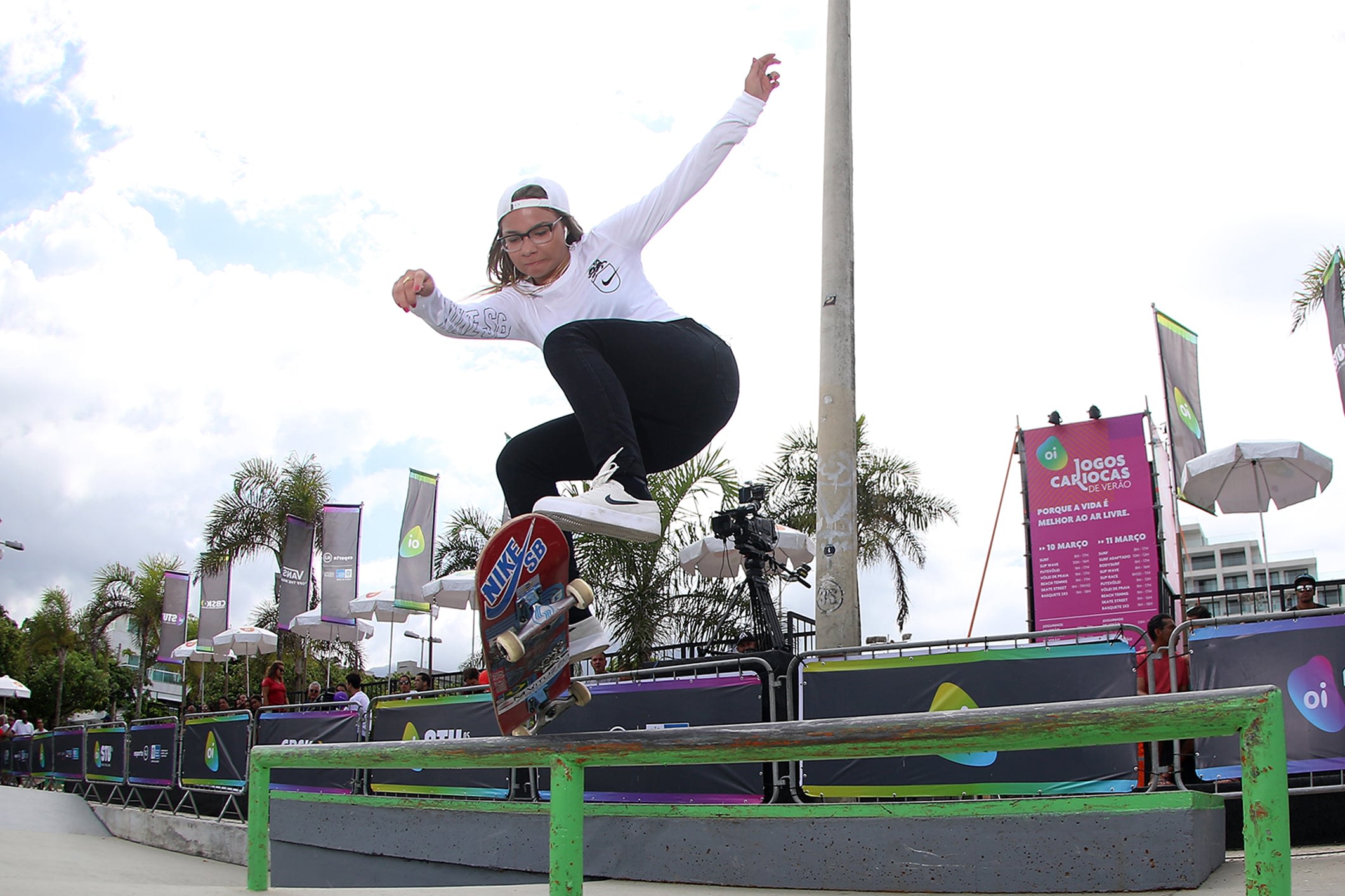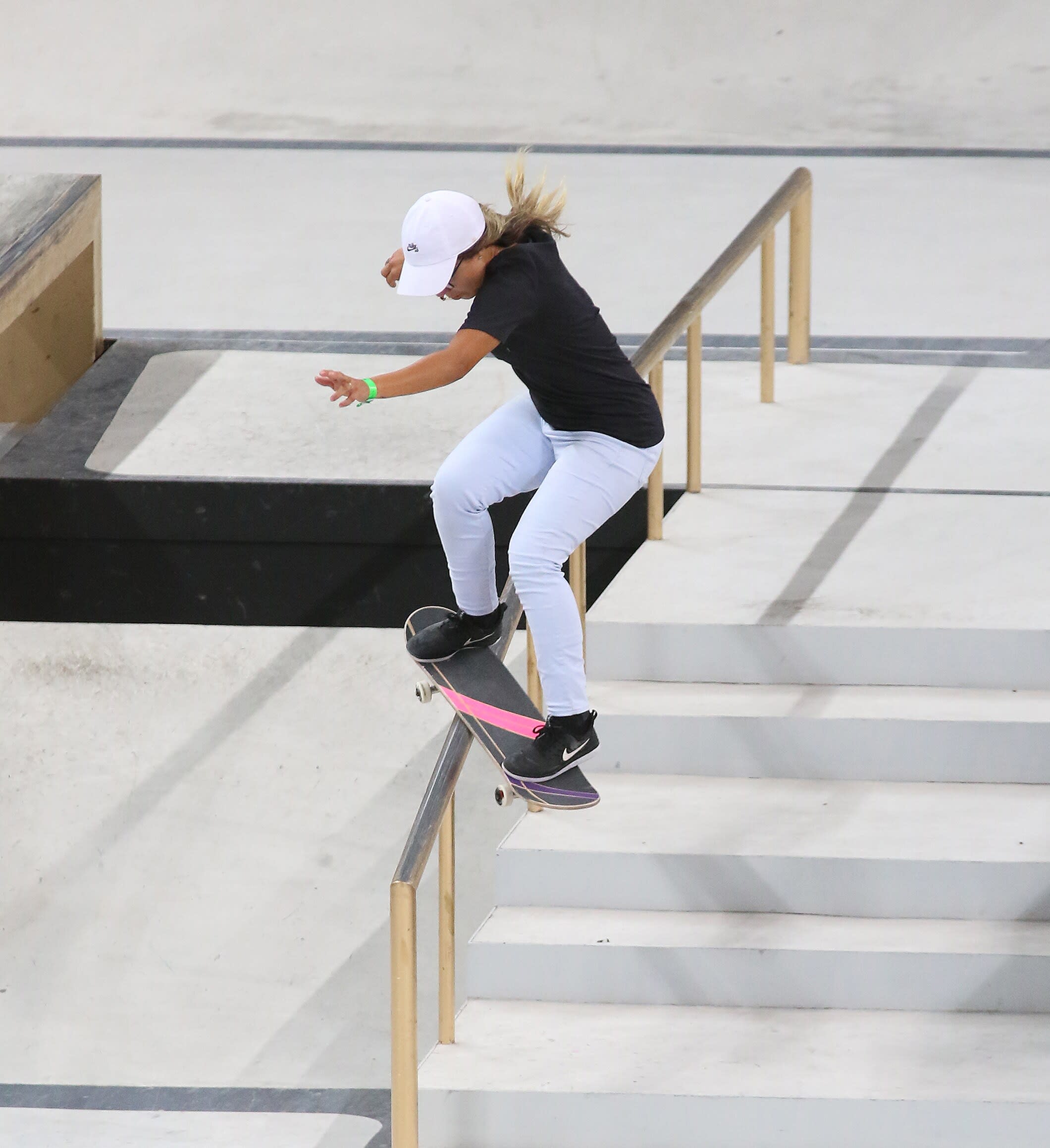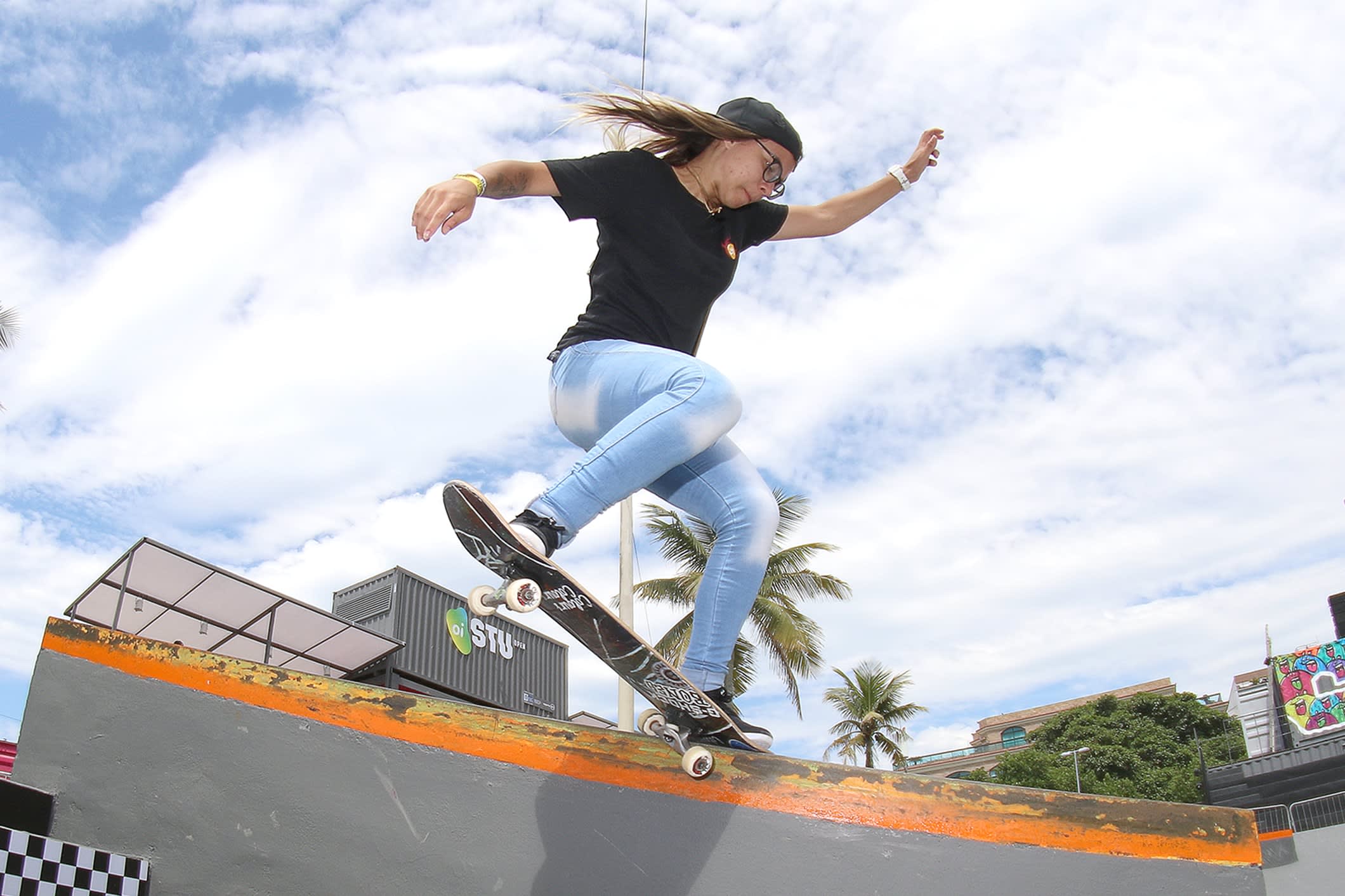On the road to Tokyo with skateboarding pioneer Pamela Rosa
Pamela Rosa is desperate to compete at the Olympic Games Tokyo 2020 and be the kind of role model she never had as a young, female skateboarding fanatic growing up on the tough, inner-city streets of south-eastern Brazil.
Brazil’s Pamela Rosa may be only 19 years old, but the wannabe Olympian has already faced a long, demanding journey to reach the top tier of women’s skateboarding. Born into a low-income family in Sao Jose dos Campos, Rosa has fought a lack of facilities, financial resources and widespread support to claw her way towards the ultimate sporting stage.
Now that she is set to qualify for the Olympic Games Tokyo 2020, the two-time X Games street skateboarding gold medal winner cannot wait to show the world what she can do.
“It will be incredible for people to watch on TV,” Rosa said. “When I was a kid watching even small contests, I wanted to be part of it – so now skateboarding is in the Olympics you will get so many young girls watching it and dreaming of being in the Olympics when they are older and working so hard to get there.
“It’s a big, big opportunity for us.”
The teenager’s excitement is not only infectious, but also clearly grounded in reality. This is the moment for women’s skateboarding. For the first time, every Street League Skateboarding (SLS) – the sport’s premier global platform – event this year will feature a full women’s section with the best of the best then heading to Tokyo.
“It is a very important 18 months for us and especially for Brazil,” Rosa explained. “There is not a lot of structure for women’s skating in Brazil, but now because of the Olympics more events are starting, and more people are going to be able to compete. All of this will make the sport better and more professional.”

For Rosa, skateboarding offered a route out of poverty and hardship, and she wants as many young people around the world to at least be exposed to the sport and culture that changed her life.
“It was pretty tough growing up. We used to live in a one-bedroom house. Me, my mum, my two sisters and my dad,” she said. “As a kid, life was fine, but as I grew up I realised the area wasn’t very good and that I needed to move out. I realised where I was and had to grow up pretty quickly.
Skateboarding changed my life completely, it helped me a lot with school and with how I interacted with other people. It’s been an inspiration to me. Pamela Rosa Brazil - Pamela Rosa Brazil
“I have no idea what I would have done if I hadn’t found skating.”
Thankfully, in a twist of fate, a week after Rosa first jumped on her sister’s friend’s board the local government built a skate park just minutes from her house. A shy but highly energetic and fearless eight-year-old, Rosa grabbed the opportunity which had been presented to her.
Six years later, the Brazilian was competing at the X Games. But, perhaps more importantly, skateboarding had also drawn Rosa out of herself.

“Skateboarding changed my life completely,” the teenager said with a shy smile. “It helped me a lot with school and with how I interacted with other people. It’s been an inspiration to me.
“And now it has pushed me to meet people all over the world, to even talk to my idols, people I have always looked up to.”
Not that it has been easy. Despite the obvious natural talent Rosa showed, the youngster had to show all her tenacity to make it through the ranks.
“For the first few years it was tough to get to the contests, to be able to pay for the travel and the hotels,” Rosa explained. “My friends from the neighbourhood would give me used parts for my board. And then sometimes a small, local sponsor would give me a free board or free wheels.
“After five years of this, it started getting better.” And once it did get better, Rosa knew exactly whose support she wanted to repay first. “The money I have made has helped my family; I got my mum and dad living in a better house,” she said, the smile growing. “And I am still paying for my sister to go to college – she is studying to become a physical education teacher. I am so happy I can do this for them.”

Now she is confident that her nearest and dearest are well looked after, Rosa knows it is time to concentrate on herself. Last year she finished in the top five in all three street skateboarding X Games contests, with a best of third in Norway. But in the World Skate SLS World Championships, held in Rio de Janeiro, Brazil, Rosa finished sixth, with two Brazilians, Leticia Bufoni (second) and Virginia Fortes Aguas (fifth) ahead of her. Given that a maximum of three athletes per National Olympic Committee will qualify for street skateboarding at Tokyo 2020 and Rosa finished only just ahead of another compatriot, Karen Feitosa de Barros (seventh), she knows that the battle is on.
“I am thinking so much about Tokyo, but I have to focus on doing well this year to qualify,” she said, referencing the fact that qualification will depend on world rankings. “I have to get the points to be there.”
Given everything she has been through, you would be brave to bet against her doing just that.